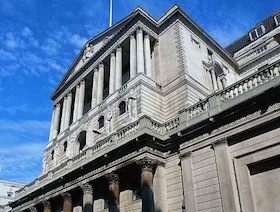The Bank of England Monetary Policy Committee remained divided over quantitative easing for the fourth consecutive month in May.
Since February, Governor Mervyn King, Paul Fisher and David Miles have voted to increase QE by £25bn. This would bring the total to £400bn.
However, they continue to be outvoted by the remaining six members of the committee who wanted QE to be held at £375bn.
Reasons given for a possible increase were that it was unlikely there would be rapid growth in output and earnings growth had fallen.
Other members argued that GDP growth had been faster than expected and growth prospects were stronger than in February.
{desktop}{/desktop}{mobile}{/mobile}
In an Inflation Report last week, Mr King said projections for growth were stronger and inflation was weaker for the first time since the start of financial crisis.
The committee voted unanimously to hold interest rates at 0.5 per cent, a rate held since March 2009.
At the time of the meeting on 8-9 May, inflation was 2.8 per cent and the committee said it expected it would fall slightly in April before increasing again to three per cent in the middle of the year. It was announced by the Office for National Statistics yesterday that inflation had fallen to 2.4 per cent.
The next meeting will be held on 5-6 June with the minutes published on 19 June. This will be the last meeting before the arrival of new Governor Mark Carney in July.
• Want to receive a free weekly summary of the best news stories from our website? Just go to home page and submit your name and email address. If you are already logged in you will need to log out to see the e-newsletter sign up. You can then log in again.

